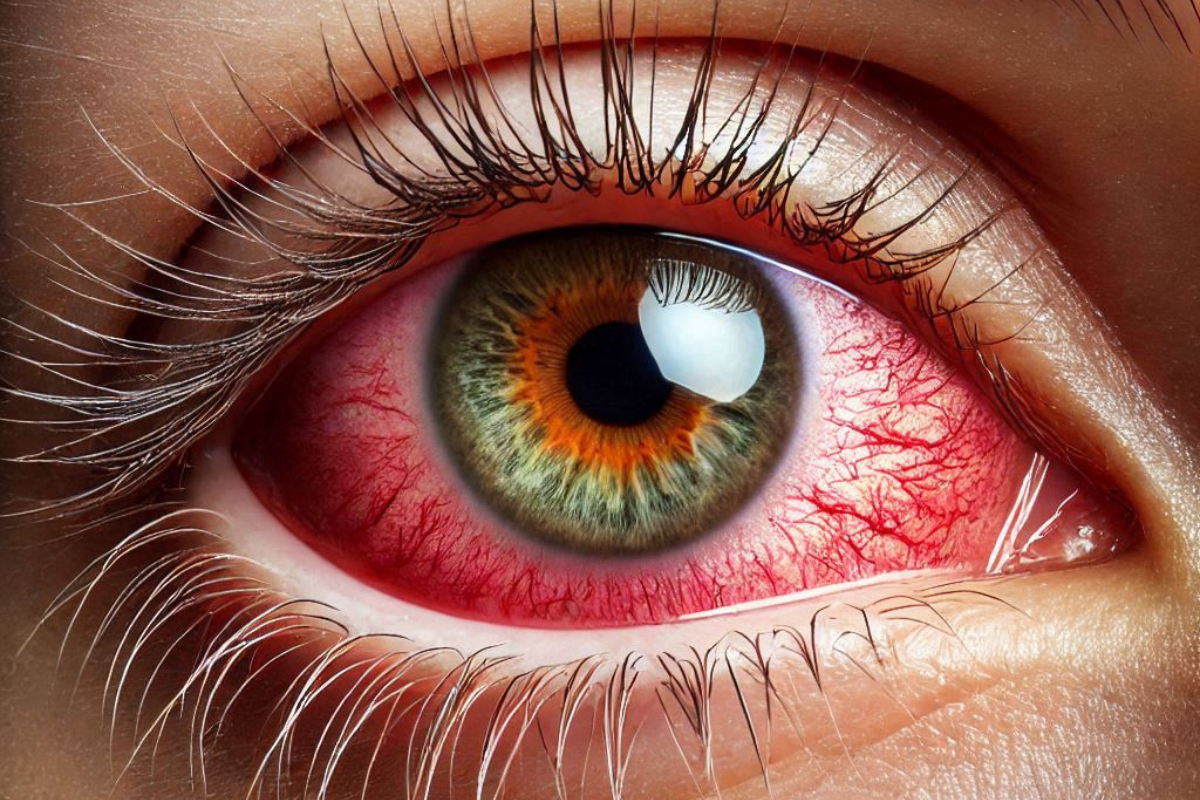Introduction:
Have you ever woken up with red, watery eyes and wondered what could be causing it? Or have you ever felt like there’s sand in your eyes, as though something is stuck there, but when you look closely, there’s nothing? These symptoms might seem harmless at first, but what if I told you that there’s a common condition that causes these discomforts and can spread easily? Keep reading to uncover the mystery behind this eye discomfort!
Eye Symptoms: When Your Eyes Are Asking for Help
Who hasn’t experienced irritated, red, watery eyes after a long day of work or a restless night’s sleep? Sometimes, the symptoms can be more intense and uncomfortable than we realize. In addition to redness, the feeling of “sand” in your eyes, persistent itching, light sensitivity, and even blurred vision are signs that something isn’t quite right. If you’ve experienced this, you’ve probably been asking yourself, “What’s happening with my eyes?”
Identifying the Symptoms: How to Recognize Eye Irritation
There are some classic signs that your eyes might be going through some kind of irritation or inflammation. Does any of these symptoms sound familiar?
- Redness in the eyes: One of the first signs that your eyes are irritated is redness in the white parts of your eyes.
- Excessive tearing: Your eyes start watering more than usual, as though they’re trying to “clean” themselves.
- Foreign body sensation: Sometimes, it feels like there’s something stuck in your eyes, but there’s nothing there, causing an uncomfortable sensation of “sand” or “grains.”
- Itching and burning: That feeling of wanting to scratch your eyes, along with a burning sensation, is a common symptom of eye irritation.
- Blurry vision: Your eyes may temporarily become blurry, making it difficult to see clearly.
- Light sensitivity: Bright light can worsen the discomfort, causing you to avoid well-lit environments or stepping outdoors.
The Mystery Revealed: What’s Behind This Eye Irritation?
Now that you’ve identified the symptoms, it’s time to understand what’s really going on. The most common cause of all these signs is inflammation of the conjunctiva, the thin membrane that covers the white part of the eye and the inside of the eyelids. This condition is known as conjunctivitis, or “pink eye,” as it is often called. It can be triggered by viruses, bacteria, or even allergies.
When conjunctivitis is viral, it tends to spread quickly, especially in environments like schools or workplaces. Bacterial forms can be transmitted by contact with eye secretions. On the other hand, allergic conjunctivitis usually occurs in response to environmental irritants like dust, pollen, or even cleaning products.
How to Treat Conjunctivitis Effectively
Now that you know what’s causing the symptoms, it’s time to discover how to treat conjunctivitis correctly. Treatment varies depending on the type of conjunctivitis you have, but fortunately, there are simple and effective solutions to relieve discomfort and speed up recovery.
- Viral Conjunctivitis: Viral conjunctivitis usually doesn’t require medication as it tends to resolve on its own. However, using cold compresses and artificial tears can help alleviate irritation and the sensation of sand in the eyes. Avoiding contact with others is crucial, as it is highly contagious.
- Bacterial Conjunctivitis: For bacterial conjunctivitis, doctors typically prescribe antibiotic eye drops to combat the infection. Be sure to follow your doctor’s instructions and not stop the medication before the prescribed time.
- Allergic Conjunctivitis: When conjunctivitis is caused by allergies, antihistamines are the most effective treatment. In addition, identifying and avoiding allergic triggers can prevent future flare-ups. Keeping your eyes clean and wearing sunglasses to protect against pollutants also helps a lot.
How to Prevent Conjunctivitis and Protect Your Eyes
Preventing conjunctivitis is possible! Although some forms are unavoidable, like those caused by seasonal allergies, adopting simple habits can make a big difference in eye health.
- Hygiene is key: Wash your hands frequently and avoid touching your eyes before cleaning them. This helps reduce exposure to viruses and bacteria.
- Don’t share personal items: Avoid using towels or makeup from others. Conjunctivitis is highly contagious, and sharing items can make transmission easier.
- Protect yourself from pollution: If you live in a polluted area or an environment with lots of dust, wear sunglasses to protect your eyes.
- Identify and avoid allergens: If you suffer from allergic conjunctivitis, it’s ideal to identify the allergens and avoid them whenever possible.
Conclusion:
Your Eyes Deserve Special Care
While the symptoms of conjunctivitis can be uncomfortable, the good news is that most forms of this condition can be treated quickly and easily. By maintaining eye hygiene, following medical guidelines, and adopting preventive habits, you can prevent your eyes from suffering from this type of irritation. Remember: if you notice any persistent or severe symptoms, consult a doctor for an accurate diagnosis and proper treatment. Take good care of your eyes, and they’ll thank you!
Frequently Asked Questions (FAQs)
1. Can conjunctivitis cause permanent vision damage?
Most of the time, conjunctivitis doesn’t cause permanent vision damage. However, if left untreated, it can lead to complications like more severe infections. It’s important to seek treatment as soon as symptoms appear.
2. Is conjunctivitis contagious?
Yes, viral and bacterial conjunctivitis are highly contagious. Allergic conjunctivitis, however, is not transmissible.
3. How can I tell if my conjunctivitis is viral or bacterial?
If you have thick, yellow or green eye discharge, you’re likely dealing with bacterial conjunctivitis. Viral conjunctivitis, on the other hand, usually has more watery discharge. A healthcare professional can make a proper diagnosis.
4. What are the best home remedies for conjunctivitis?
Cold compresses and artificial tears can relieve viral symptoms. However, it’s essential to consult a doctor for proper treatment, especially for bacterial or allergic cases.
5. Can I wear contact lenses during conjunctivitis?
During an episode of conjunctivitis, it’s best to avoid wearing contact lenses as they can irritate the eyes further and increase the risk of contamination. Consult your doctor for specific guidelines.
Read More on juliocemar.com
Also Read: Do You Feel Eye Pain or Blurry Vision? ajustersavie.com

